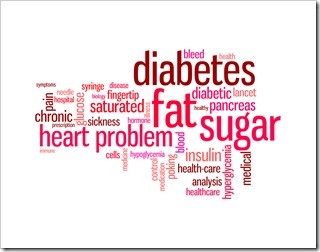The Planet of Chronic Diseases
by Dr. Richard Huntoon
Read The Planet of Chronic Diseases by Dr. Richard Huntoon to learn more about Advanced Alternative Medicine Center and our Chiropractic office in Building 400, Pooler Park, Pooler, GA.
We look forward to serving you! Call - 845-561-2225.
 Have you ever looked up at the stars and lost yourself in the vastness of the universe? Where we momentarily step outside of ourselves and see the planet as the large vast terrain that we have only begun to explore. Our world connection is virtually delivered and contained most often to worldwide things like starvation, epidemics, and drought. While these things continue to plague mankind, there is now a newer problem that has surpassed these old disasters. This disaster is hitting home and connecting us to a common core. The number one threat to human life on the planet today is the crisis of chronic disease.
Have you ever looked up at the stars and lost yourself in the vastness of the universe? Where we momentarily step outside of ourselves and see the planet as the large vast terrain that we have only begun to explore. Our world connection is virtually delivered and contained most often to worldwide things like starvation, epidemics, and drought. While these things continue to plague mankind, there is now a newer problem that has surpassed these old disasters. This disaster is hitting home and connecting us to a common core. The number one threat to human life on the planet today is the crisis of chronic disease.
How Serious is the Threat?
This threat of chronic diseases is no longer a threat but now declared by the World Health Organization the number one killer on the planet. Chronic disease is now the cause of over fifty percent of deaths worldwide. Furthermore, the death toll currently caused by chronic disease continues to increase steadily.
Facts about chronic disease from the World Health Organization:
- Chronic diseases are now the major cause of death and disability worldwide. Noncommunicable conditions, including cardiovascular diseases (CVD), diabetes, obesity, cancer and respiratory diseases, now account for 59% of the 57 million deaths annually and 46% of the global burden of disease.
- A relatively few risk factors – high cholesterol, high blood pressure, obesity, smoking and alcohol – cause the majority of the chronic disease burden.
- A change in dietary habits, physical activity and tobacco control, have a major impact in reducing the rates of these chronic diseases, often in a relatively short time.
- Heart attacks and strokes kill about 12 million people every year; another 3.9 million die from hypertensive and other heart conditions.
- More than one billion adults worldwide are overweight; at least 300 million of them are clinically obese.
- About 75% of CVD can be attributed to the majority risks: high cholesterol, high blood pressure, low fruit and vegetable intake, inactive lifestyle and tobacco.
- Sustained behavioral interventions have been shown to be effective in reducing population risk factors.
Modern Health Lifestyles to Blame
Chronic diseases include things like heart disease and strokes, cancer, diabetes, arthritis and dementia, and many others. These diseases are widely understood to be the result of our modern lifestyle choices. Over the past several decades, research has shown that these chronic illnesses are preventable in large part if we learn to make different choices. In other words, if we live differently.
Unfortunately today people worldwide are consuming more foods that are energy-dense – high in sugar and/or saturated fats – or excessively salty. This nutritional shift to fast and processed foods in combination with our sedentary behavior is occurring at an alarming rate. Another concerning fact is that chronic diseases are becoming increasingly prevalent in many of the poorest developing countries, creating a double burden on top of the infectious diseases that continue to afflict these countries.
Predictions for the future are that this chronic illness crisis, as bad as it is today, will get much worse. Cancer rates have been predicted to go up by 50% by the year 2020. One in three children born in the USA today will develop diabetes. And research continues to show our toxic modern lifestyle is the cause.
Prevention is the Best Cure
As you know prevention is the best cure. With today’s knowledge of identifying the cause our expert team is here to help you change and build for a healthier future. We want to help you build a better lifestyle which includes what you think, what you eat, and how you use your body.
If you are currently suffering with a chronic disease please do not hesitate to call us. We are here to help.
For Your Health,
Dr. Richard Huntoon
